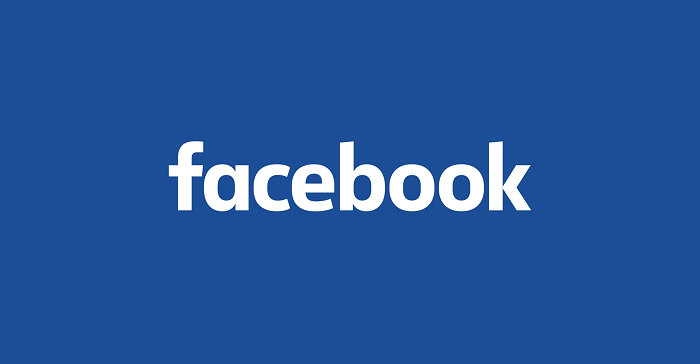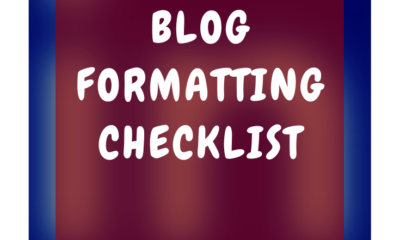SOCIAL
New Report Shows that Meta Sought to Cull Political Content from Facebook – and Users Didn’t Like it

In January 2021, in the wake of the Capitol Riots, and after years of debate over the impact that political content was having on Facebook users, Meta CEO Mark Zuckerberg had decided enough was enough.
As Zuckerberg noted in a Facebook earnings call on January 27th:
“One of the top pieces of feedback we’re hearing from our community right now is that people don’t want politics and fighting to take over their experience on our services.”
Political content had become so divisive, that Zuckerberg directed his engineering teams to effectively cut political content out of people’s News Feeds altogether, in order to focus on things that made people happier, with a view to getting Facebook usage growth back on track.
And Facebook’s team did. You may or may not have noticed, but political content has reduced in Facebook feeds, significantly so over the past 12 months. But in the end, Meta found that Facebook engagement didn’t increase as a result.
As it turns out, a lot of people do like political debates, even if they feel divisive.
These findings have been revealed in new documents obtained by The Wall Street Journal, which outline how Meta went about culling political content from Facebook feeds, then gradually adding it back in, in response to engagement shifts.
As WSJ notes, the demotion of political content in the app actually had various negative consequences in relation to Meta’s business:
“Views of content from what Facebook deems ‘high quality news publishers’ such as Fox News and CNN fell more than material from outlets users considered less trustworthy. User complaints about misinformation climbed, and charitable donations via the company’s fundraiser product through Facebook fell in the first half of 2022.”
In addition to this, WSJ reports, Facebook users simply didn’t like it.
The long-held criticism of Facebook in this respect has been that it benefits from political debates in the app, because they spark engagement, with people more likely to comment and share posts that they have a passionate response to, one way or another, which often means that argumentative, controversial takes gain more traction than balanced reports and content.
Which has made it the perfect breeding ground for more extreme political candidates to gain traction. As former US President Donald Trump showed, taking a hardline stance on controversial issues will certainly get you attention, with Trump using Facebook ads, in particular, as a key weapon to provoke people’s fears, and ideally, win their votes.
The downside of this is that such toxicity also pushes some audiences further away, and as Zuckerberg notes, a lot of Facebook users have indicated that they’ve had enough of the politics-based fights in the app, with their relatives and former school mates using the platform to push their controversial opinions, which are then displayed in amongst birthday wishes, marriage announcements, etc.
Evidently, though, Meta needs to maintain a balance – which it is trying to do:
“Meta now estimates politics accounts for less than 3% of total content views in users’ newsfeed, down from 6% around the time of the 2020 election, the documents show. But instead of reducing views through indiscriminate suppression or heavy-handed moderation, Facebook has altered the newsfeed algorithm’s recommendations of sensitive content toward what users say they value, and away from what simply makes them engage, according to documents and people familiar with the efforts.”
That last element is important – Facebook has altered the feed algorithm to better promote what users say that they value, as opposed to what makes them engage.
This is a key distinction, which is almost impossible to get right. Meta, of course, would have its own metrics for ‘value’ in this context, and the actions that people take which demonstrate value, as opposed to straight engagement.
Time spent reading, link clicks, shares – all of these could be more indicative of ‘value’ as opposed to emotional engagement. But optimizing for maximum usage, while also managing this element, is a difficult balance, which no platform has got 100% right as yet.
TikTok’s algorithm is arguably closest to providing the best pure entertainment, based on your interests. But even then, TikTok has also been used to promote political content at times, and has its own concerns in regards to the suppression and promotion of certain posts.
The bottom line, however, is that Facebook’s algorithm is now looking to optimize for different elements, and that simply sparking emotional response may not be as effective as it once was. Unfortunately, we don’t know the alternative measures that will help you maximize reach and resonance in the app, but it’s worth noting the News Feed algorithm shift in this respect, and matching that against your own efforts in the app.
SOCIAL
Snapchat Explores New Messaging Retention Feature: A Game-Changer or Risky Move?

In a recent announcement, Snapchat revealed a groundbreaking update that challenges its traditional design ethos. The platform is experimenting with an option that allows users to defy the 24-hour auto-delete rule, a feature synonymous with Snapchat’s ephemeral messaging model.
The proposed change aims to introduce a “Never delete” option in messaging retention settings, aligning Snapchat more closely with conventional messaging apps. While this move may blur Snapchat’s distinctive selling point, Snap appears convinced of its necessity.
According to Snap, the decision stems from user feedback and a commitment to innovation based on user needs. The company aims to provide greater flexibility and control over conversations, catering to the preferences of its community.
Currently undergoing trials in select markets, the new feature empowers users to adjust retention settings on a conversation-by-conversation basis. Flexibility remains paramount, with participants able to modify settings within chats and receive in-chat notifications to ensure transparency.
Snapchat underscores that the default auto-delete feature will persist, reinforcing its design philosophy centered on ephemerality. However, with the app gaining traction as a primary messaging platform, the option offers users a means to preserve longer chat histories.
The update marks a pivotal moment for Snapchat, renowned for its disappearing message premise, especially popular among younger demographics. Retaining this focus has been pivotal to Snapchat’s identity, but the shift suggests a broader strategy aimed at diversifying its user base.
This strategy may appeal particularly to older demographics, potentially extending Snapchat’s relevance as users age. By emulating features of conventional messaging platforms, Snapchat seeks to enhance its appeal and broaden its reach.
Yet, the introduction of message retention poses questions about Snapchat’s uniqueness. While addressing user demands, the risk of diluting Snapchat’s distinctiveness looms large.
As Snapchat ventures into uncharted territory, the outcome of this experiment remains uncertain. Will message retention propel Snapchat to new heights, or will it compromise the platform’s uniqueness?
Only time will tell.
SOCIAL
Catering to specific audience boosts your business, says accountant turned coach

While it is tempting to try to appeal to a broad audience, the founder of alcohol-free coaching service Just the Tonic, Sandra Parker, believes the best thing you can do for your business is focus on your niche. Here’s how she did just that.
When running a business, reaching out to as many clients as possible can be tempting. But it also risks making your marketing “too generic,” warns Sandra Parker, the founder of Just The Tonic Coaching.
“From the very start of my business, I knew exactly who I could help and who I couldn’t,” Parker told My Biggest Lessons.
Parker struggled with alcohol dependence as a young professional. Today, her business targets high-achieving individuals who face challenges similar to those she had early in her career.
“I understand their frustrations, I understand their fears, and I understand their coping mechanisms and the stories they’re telling themselves,” Parker said. “Because of that, I’m able to market very effectively, to speak in a language that they understand, and am able to reach them.”Â
“I believe that it’s really important that you know exactly who your customer or your client is, and you target them, and you resist the temptation to make your marketing too generic to try and reach everyone,” she explained.
“If you speak specifically to your target clients, you will reach them, and I believe that’s the way that you’re going to be more successful.
Watch the video for more of Sandra Parker’s biggest lessons.
SOCIAL
Instagram Tests Live-Stream Games to Enhance Engagement

Instagram’s testing out some new options to help spice up your live-streams in the app, with some live broadcasters now able to select a game that they can play with viewers in-stream.
As you can see in these example screens, posted by Ahmed Ghanem, some creators now have the option to play either “This or That”, a question and answer prompt that you can share with your viewers, or “Trivia”, to generate more engagement within your IG live-streams.
That could be a simple way to spark more conversation and interaction, which could then lead into further engagement opportunities from your live audience.
Meta’s been exploring more ways to make live-streaming a bigger consideration for IG creators, with a view to live-streams potentially catching on with more users.
That includes the gradual expansion of its “Stars” live-stream donation program, giving more creators in more regions a means to accept donations from live-stream viewers, while back in December, Instagram also added some new options to make it easier to go live using third-party tools via desktop PCs.
Live streaming has been a major shift in China, where shopping live-streams, in particular, have led to massive opportunities for streaming platforms. They haven’t caught on in the same way in Western regions, but as TikTok and YouTube look to push live-stream adoption, there is still a chance that they will become a much bigger element in future.
Which is why IG is also trying to stay in touch, and add more ways for its creators to engage via streams. Live-stream games is another element within this, which could make this a better community-building, and potentially sales-driving option.
We’ve asked Instagram for more information on this test, and we’ll update this post if/when we hear back.
-

 PPC5 days ago
PPC5 days agoHow the TikTok Algorithm Works in 2024 (+9 Ways to Go Viral)
-

 SEO6 days ago
SEO6 days agoBlog Post Checklist: Check All Prior to Hitting “Publish”
-

 SEO4 days ago
SEO4 days agoHow to Use Keywords for SEO: The Complete Beginner’s Guide
-

 MARKETING5 days ago
MARKETING5 days agoHow To Protect Your People and Brand
-

 PPC6 days ago
PPC6 days agoHow to Craft Compelling Google Ads for eCommerce
-

 SEARCHENGINES6 days ago
SEARCHENGINES6 days agoGoogle Started Enforcing The Site Reputation Abuse Policy
-

 MARKETING4 days ago
MARKETING4 days agoThe Ultimate Guide to Email Marketing
-

 MARKETING6 days ago
MARKETING6 days agoElevating Women in SEO for a More Inclusive Industry
















You must be logged in to post a comment Login